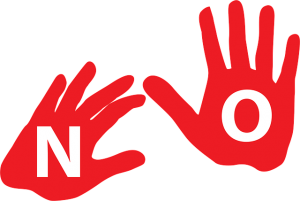During active addiction, we say, “Yes,” to illicit substances such as opioids and cannabis every day. We say, “Yes,” to alcohol. We may decide a variety of substances are our choice substance, or it may be just one. Either way, saying, “No,” tends to fall out of our vocabulary. Even after we find sobriety and recovery, our coping skills can fall to the wayside, especially if we begin to surround ourselves with friends around whom we used to drink and use. The things that once kept us sober can easily be forgotten if we drive by the liquor store and a quick craving or thought about drinking crosses our mind.
Family events and celebrations, such as holiday dinners, could easily provide easy access to alcohol. We need to have the ability to say, “No,” scripted and practiced in case it needs to be given at any time. Our continued recovery counts on it.
Drinking Refusal Skill Tips
It is easy to assume we will be able to refuse a substance we are addicted to once we have had some sober time under our belt. That does not mean that, just because we are sober, everyone else will follow suit. It also does not mean that people will no longer partake in utilizing substances we must now avoid. So what are some good tips to help us stay on the straight and narrow?

- Make a plan ahead of time in order to aid in being in control. Practice refusal skills out loud. Decide on which option you would like to take if you become overwhelmed with cravings and desires to drink. This plan may include calling someone, specific places you can go, or an array of coping skills.
- Recognize, avoid, and cope. This technique involves a cognitive behavioral therapy approach to help you to reassess unhealthy thought patterns as well as how you behave in response to your thoughts.
- When you say, “No,” make sure you say it with confidence. Do not make excuses or justifications as to why you can’t drink. This will only invite further opportunities to get the other people to try to talk you into joining them. Keep your answers short. When speaking to the person of which you are declining the offer, look them in the eyes and do not pause before allowing the words to come out of your mouth.
- Some examples include, “No thank you,” or “No thanks, I would rather not.”
- You can even state that you are no longer drinking and ask that the individual respect your choice to be sober.
- Be aware of both indirect and direct pressure to drink. Direct pressure involves being offered alcohol while indirect pressure happens to us when we are simply around a substance that used to, or still does, control us.
Where Can Help You Learn to Say “No” to Alcohol and Drugs
We have trained professionals standing by twenty- four hours a day to help you in your time of need. Discovery Place in Burns, Tennessee has 12-Step program recovery guides who are in the midst of recovery themselves. We place six or fewer individuals with each recovery guide to allow one on one attention for each program participant. Call us today at 1-800-725-0922 and put yourself before your addiction!

